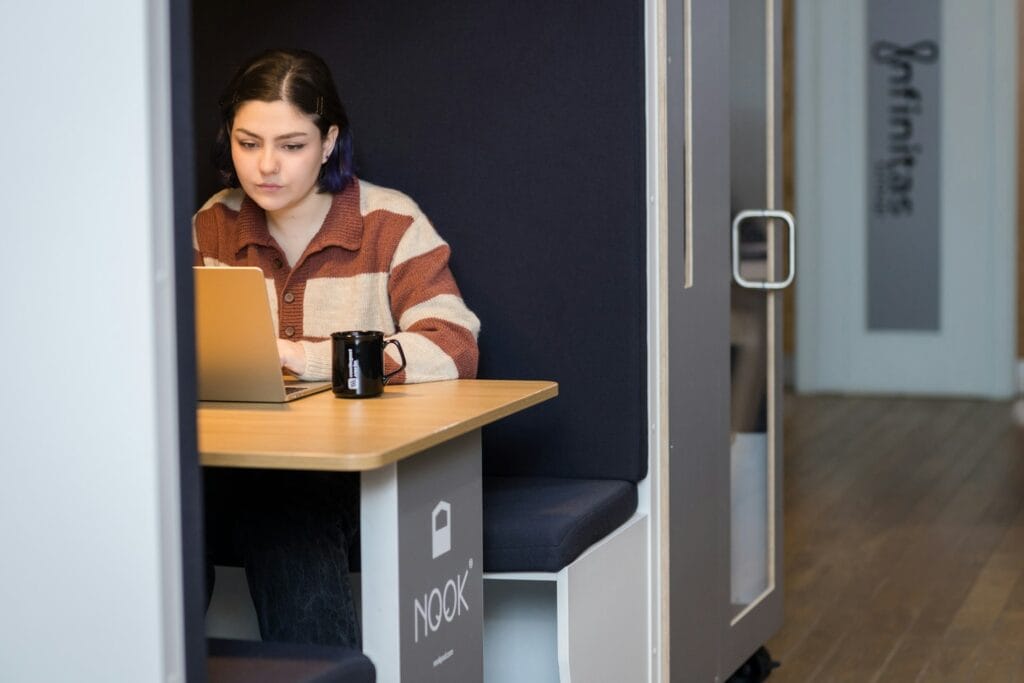Work pressure is a common experience that many face daily. It arises from various work challenges that demand our time and energy. Whether it’s meeting tight deadlines, handling multiple projects, or dealing with demanding clients, work pressure can quickly become overwhelming.
Unmanaged work pressure can lead to stress, which impacts mental and physical health. It can cause feelings of anxiety, fatigue and burnout. Addressing these feelings early is important to maintain personal health and workplace productivity. By understanding and managing stress, you can create a more balanced and fulfilling work experience.
While work pressure is inevitable, developing practical strategies to handle it can transform your work environment. This includes setting realistic goals, adapting positive habits and utilising supportive resources.
Creating a supportive workspace and seeking help when needed are key steps in reducing stress. By taking charge of your work environment, you can reduce pressure and enjoy your professional journey more fully.
Understanding Work Pressure
Work pressure refers to the stress and demands associated with job tasks and responsibilities. It is often caused by tight deadlines, high performance expectations and increased workloads. Additionally, a lack of control over daily tasks and poor communication within teams can intensify pressure.
Prolonged work pressure can severely affect both mental and physical health. Stress over time may lead to anxiety, depression and burnout. Physically, it can result in headaches, fatigue and sleep problems. Extended exposure to stress can weaken the immune system, leading to more frequent illnesses. Acknowledging these potential impacts underscores the importance of addressing work pressure proactively.
Strategies to Manage Work Pressure
Reducing work pressure involves adopting practical strategies that help manage tasks and reduce stress. Start by setting realistic deadlines and breaking tasks into smaller, manageable parts. Prioritising tasks allows you to focus on the most important ones first, reducing the feeling of being overwhelmed. Organising your workload with a clear timeline can provide structure and clarity.
Several techniques can further ease work pressure. Effective time management, such as creating a daily schedule and sticking to it, helps ensure that tasks are completed efficiently. Adopting a positive mindset can also play a significant role in handling stress. Encourage yourself with positive affirmations and remind yourself of past successes to build confidence. Practising deep breathing or meditation can help clear the mind and reduce anxiety.
Taking regular breaks is essential for maintaining a healthy work-life balance. Short breaks can recharge your energy, improve focus and prevent burnout. Ensuring that you have time for hobbies, exercise and social activities outside of work is also vital.
These activities refresh your mind and body, promoting overall well-being. By incorporating these strategies, you can manage work pressure effectively and create a balanced and productive work life.
The Role of Workspace Environment
An effective workspace plays a significant role in easing work pressure and enhancing productivity. A well-organised environment helps minimise distractions, allowing for better concentration on tasks. Designing workspaces to accommodate different types of work, such as quiet zones for focused tasks and collaborative areas for group projects, can help manage stress levels effectively.
Coworking spaces provide a unique solution with their flexibility and community-driven atmosphere. These spaces offer the freedom to choose where and how you work, reducing the monotony of a traditional office setup. The presence of a supportive community in coworking spaces can also alleviate stress by providing opportunities for networking, sharing experiences and seeking advice from peers.
Key features of a conducive work environment include ergonomic design and quiet areas. Ergonomic furniture supports proper posture, reducing the risk of physical strain. Quiet zones allow individuals to focus on their work without interruptions.
Incorporating natural light and greenery can also create a calming and pleasant atmosphere, further reducing stress. By optimising workspace, individuals can create a productive environment conducive to managing work pressure efficiently.
Seeking Support and Building Resilience
Seeking support is crucial when dealing with work pressure. Connecting with colleagues or managers can provide valuable insights and alternative solutions to challenges. Professional services, such as counselling or stress management workshops, can offer additional support and guidance. These resources help individuals understand and manage their stress more effectively, promoting a healthier work-life balance.
Building resilience is another vital aspect of managing stress. Developing skills like problem-solving and adaptability prepares individuals to handle unexpected hurdles confidently. This resilience enhances one’s ability to remain calm under pressure and bounce back from setbacks. Engaging in continuous learning and skill-building can enhance these abilities further.
Participating in workshops or activities designed to promote mental well-being can also be highly beneficial. These events often provide a break from routine, allowing for personal reflection and the development of stress-relief techniques. By fostering a mindset of resilience and openness to support, individuals can significantly reduce the impact of work pressure on their lives.
Conclusion
Managing work pressure effectively is essential for maintaining both personal well-being and professional productivity. By recognising the signs of stress early and employing strategies like setting priorities, taking breaks and using time management techniques, you can improve your work environment and balance.
Creating a supportive workspace, whether at an office or coworking location, enhances focus and reduces stress. Utilising resources, seeking support and building resilience further helps in navigating work challenges successfully.
At The Workers’ League, you’ll find the perfect setting to ease work pressure and boost productivity. Our coworking spaces are designed to offer flexibility, comfort and a sense of community. Whether you need a quiet corner to focus on or a vibrant hub for collaboration, we provide the environment to suit your needs. Contact The Workers’ League and turn work pressure into a productive, rewarding experience.
